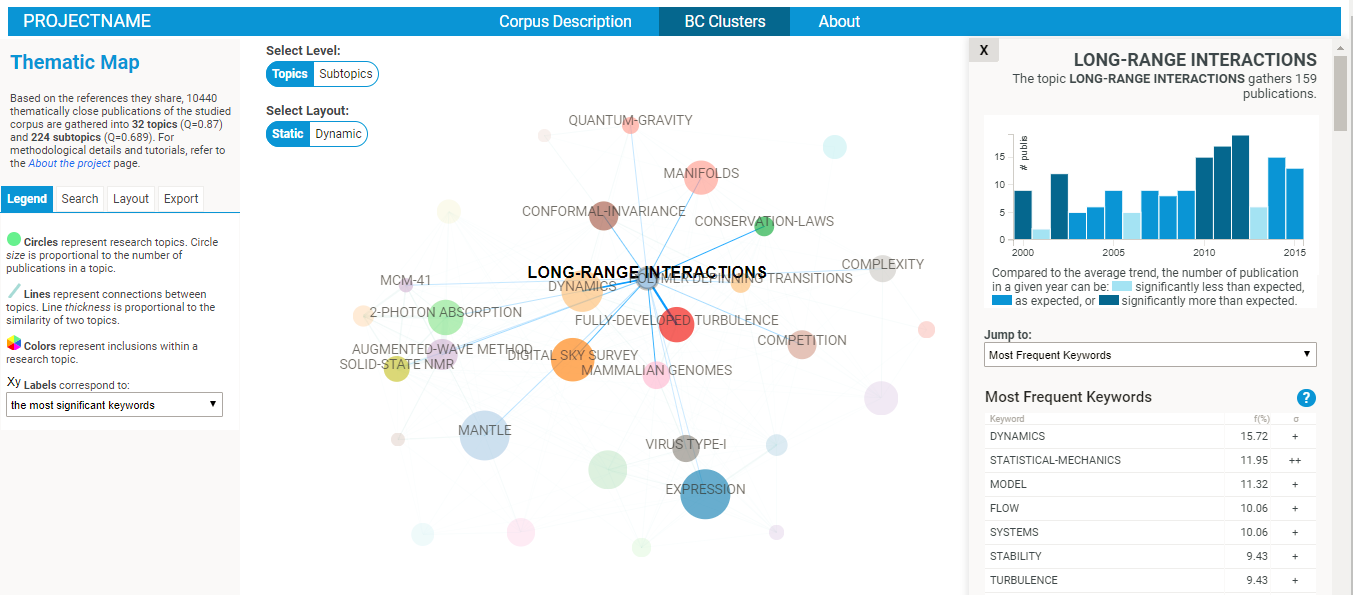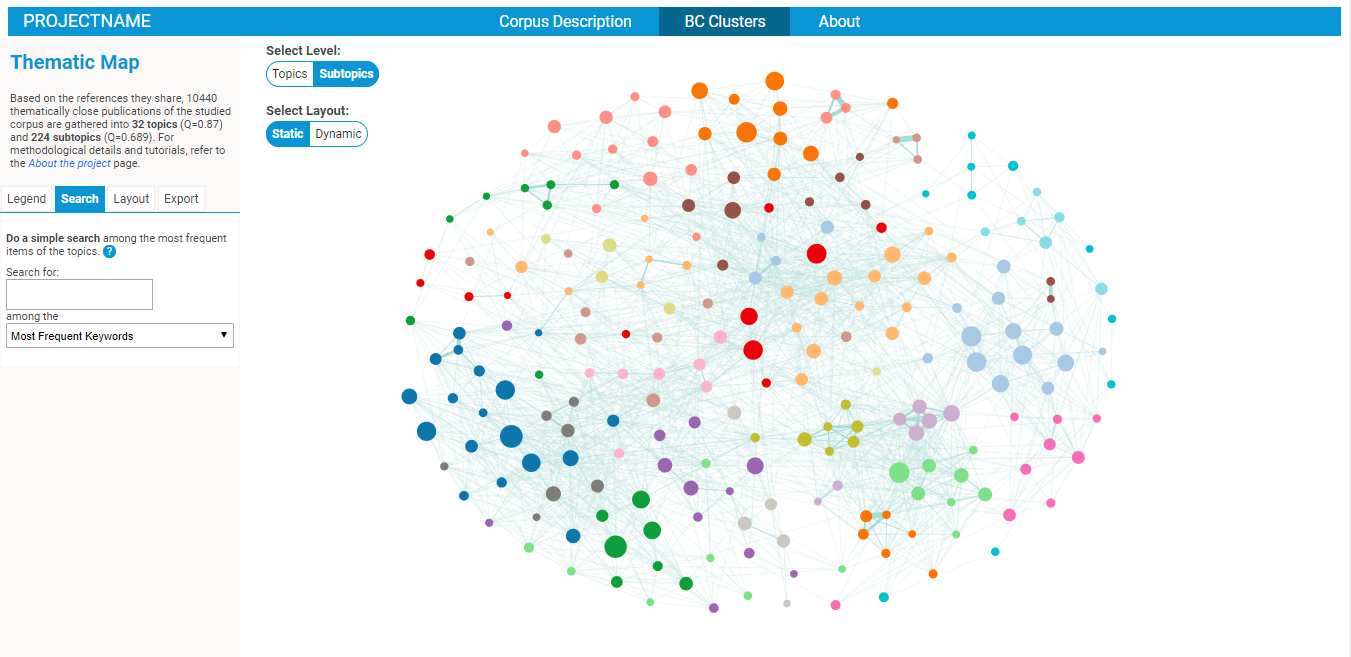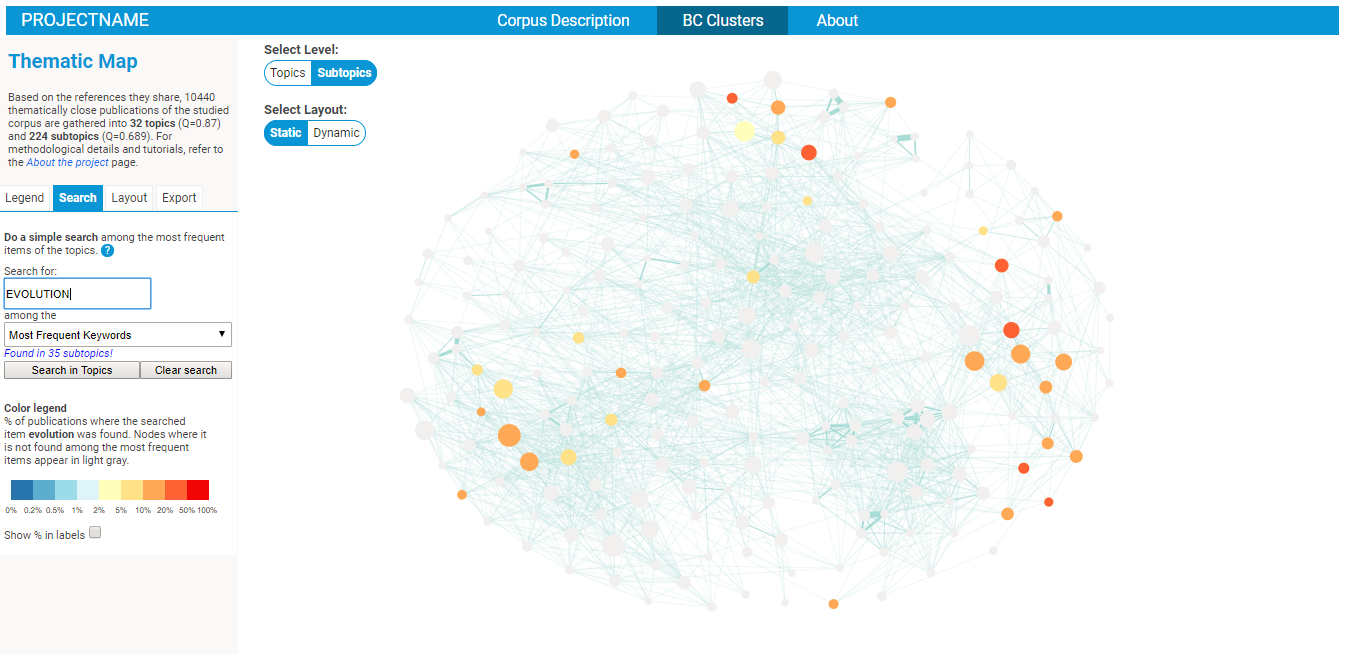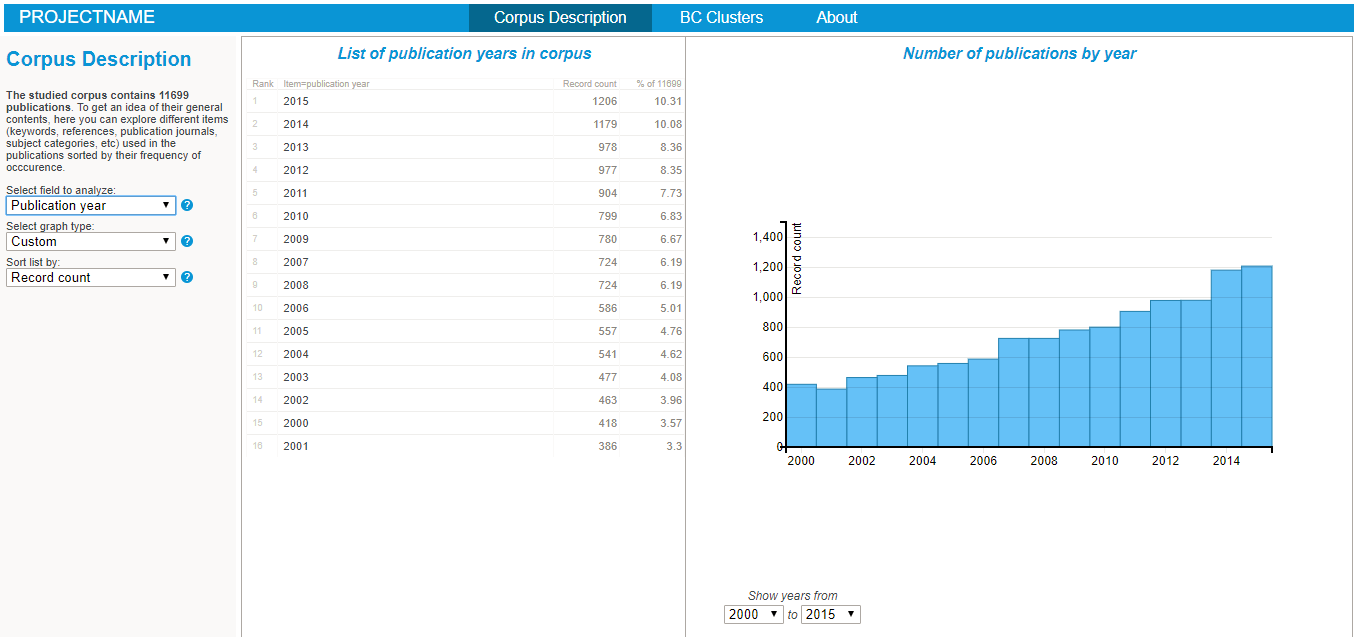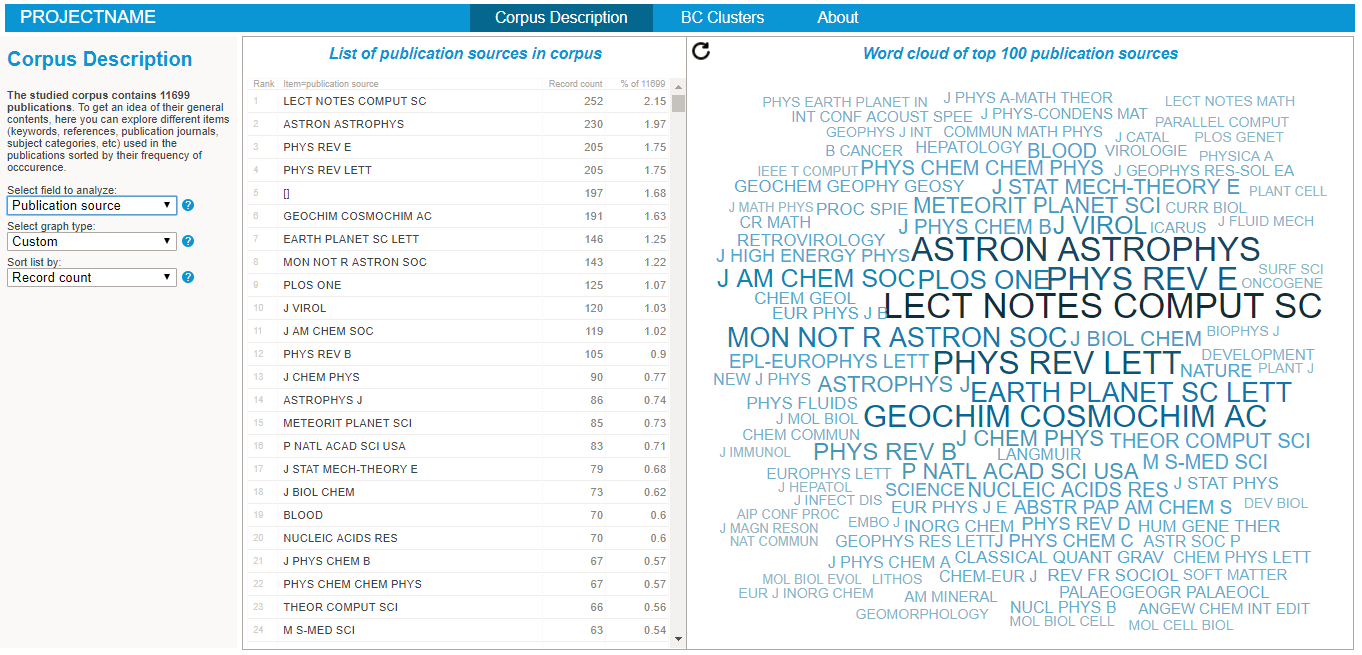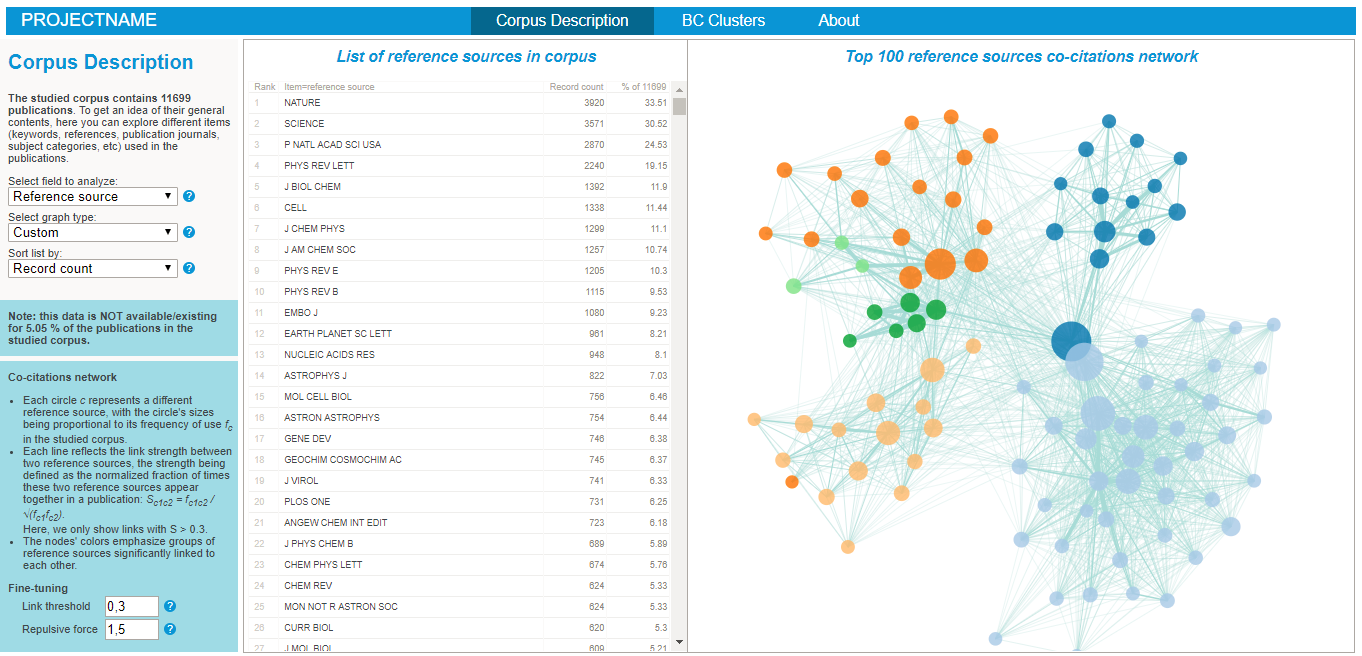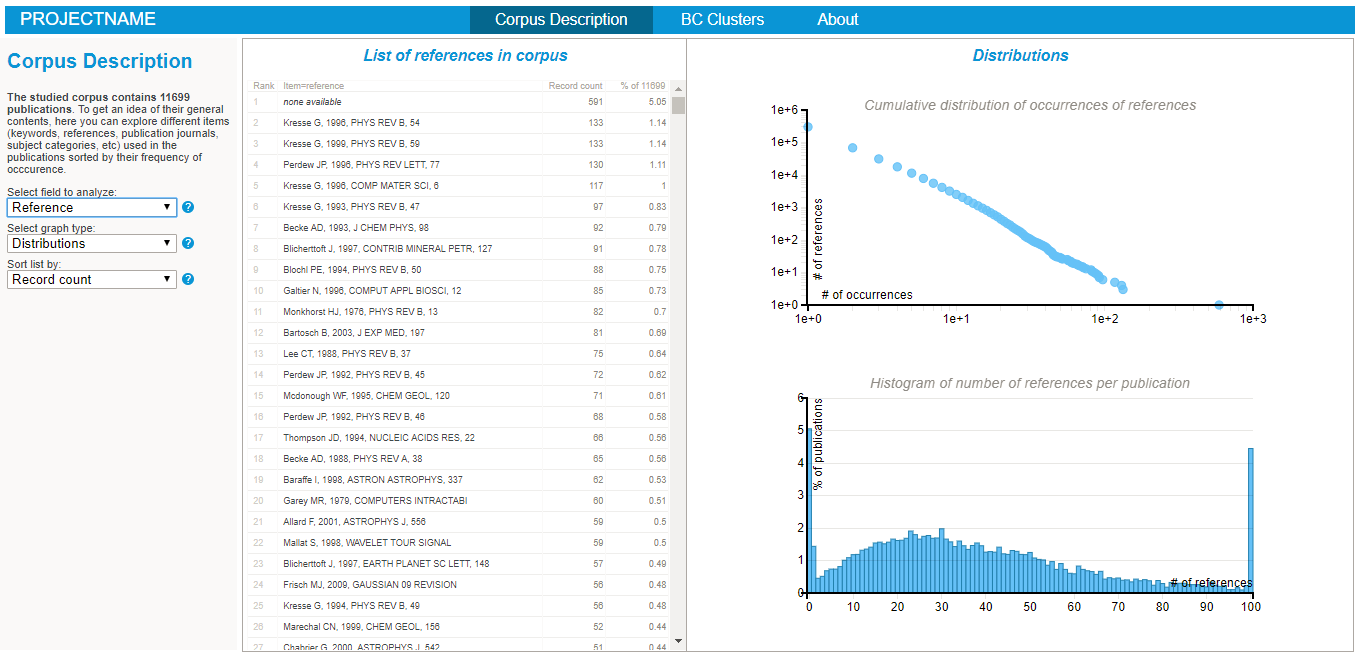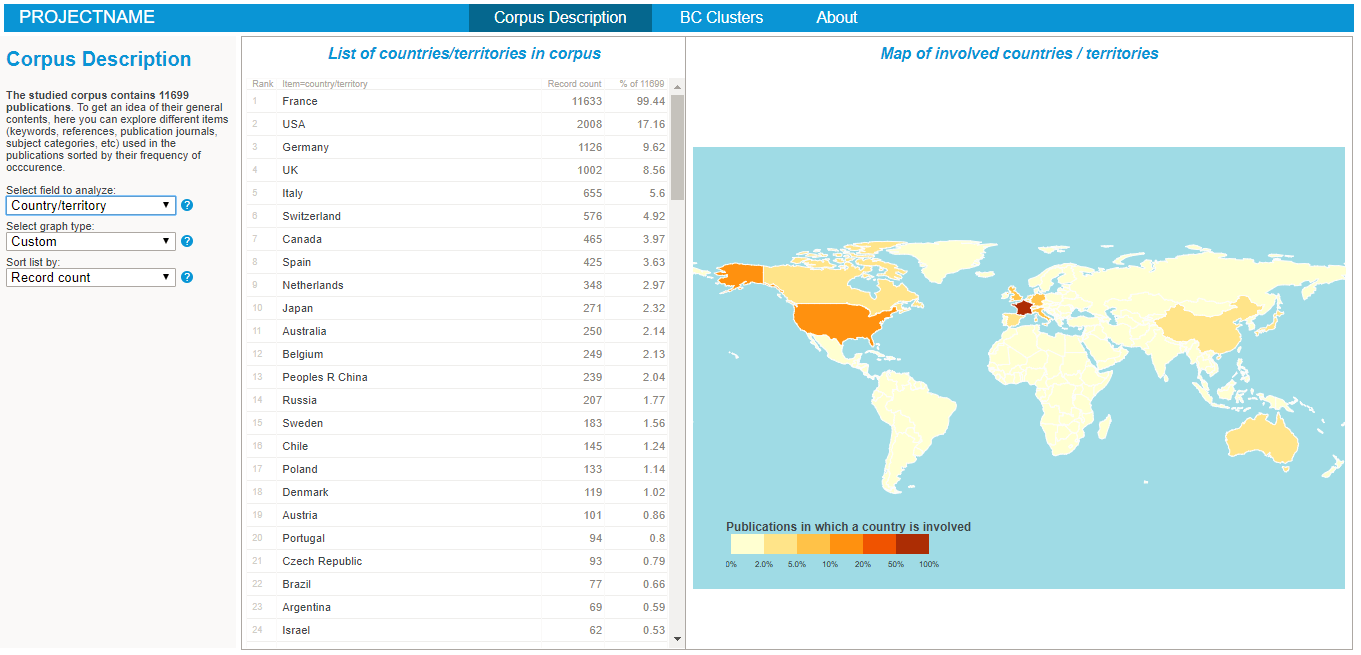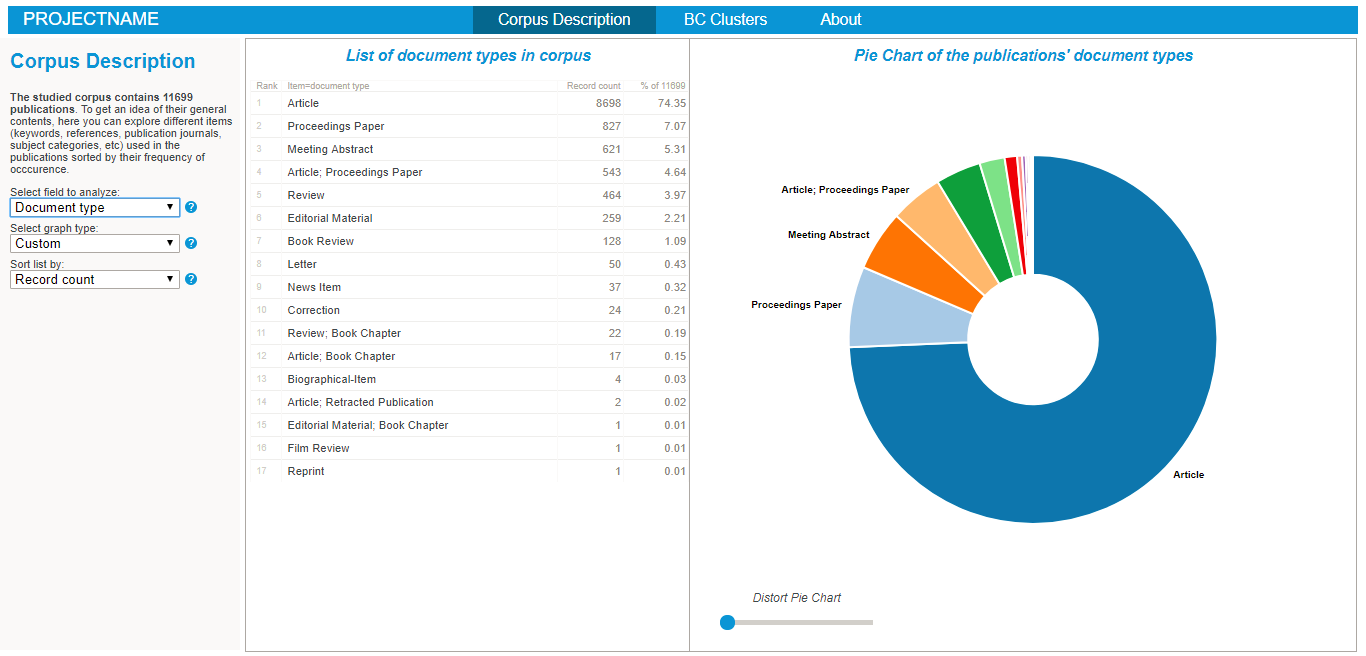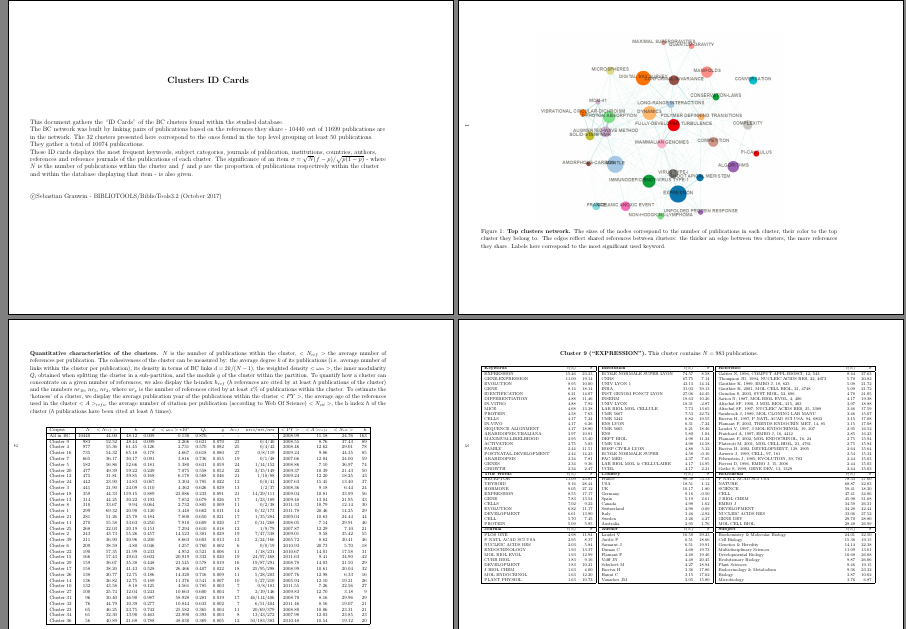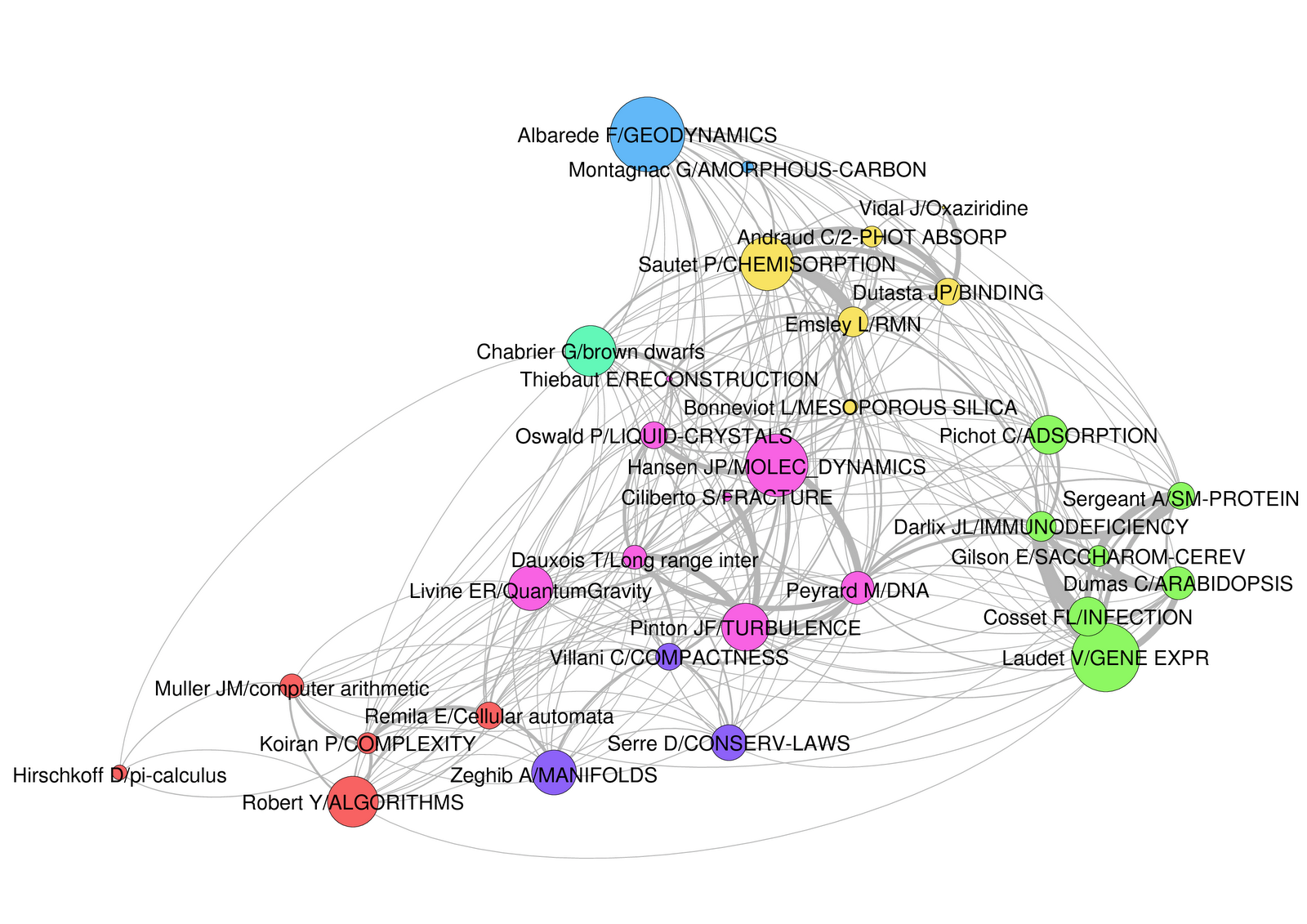Overview of the project
Screenshots of visualisations generated by BibioTools / BiblioMaps.
BiblioTools is a freely available set of scripts developed to create maps of science based on bibliographic data. It gathers different python codes allowing their users to perform several tasks:
- data mining: the software can handle bibliographic records exported from either the Web of Science or Scopus.
- data processing: a script is dedicated to the pre-processing (parsing & filtering) of the raw data.
- data analysis: description of a given corpus; generation of various co-occurrence (co-words, co-authors, co-citations, etc) networks; generation of bibliographic coupling networks and clusters.
- data visualisation: results can be visualized and explored in BiblioMaps, a dedicated web-based interface; networks can also be exported in a format compatible with standard visualisation tools such as Gephi.
- data report: automatic generation of reports in Latex.
BiblioMaps is a freely available set of html/css/js codes generating a web-based visualisation interface allowing their users to explore the nature of the studied corpus as well as various co-occurence and topical maps.
BiblioTools & BiblioMaps can be e.g. used by:
- Students or anyone new to a field of research looking to quickly understand its landscape, including which topics are most actively being investigated, key researchers / references / keywords / journals or conferences to know, etc.
- Policy makers or science historian / epistemologist trying to get a comprehensive view of the research performed in a given institute / field of science.
- Educators looking for the most relevant piece of research on a particular topic.
- Researchers looking for new collaborators, journals / conferences to which they could submit.
- Technology developers or editors looking for an expert in a particular area of research.
These scripts are designed to be used as a black box: no extended knowledge of python is required for using them. Depending on the scope of your project you may thus:
- Download the software and use it on your data.
- Download the software and edit / improve / expand the code as you see fit, if you are a motivated developper. Needless to say, feedbacks are always welcome!
- Contact me for assistance on how to use the software or adapt it to your project. I'm open to providing advices, collaborating on a research project or doing some free-lance work - my preferred option depending on the context & scope of your questions.
